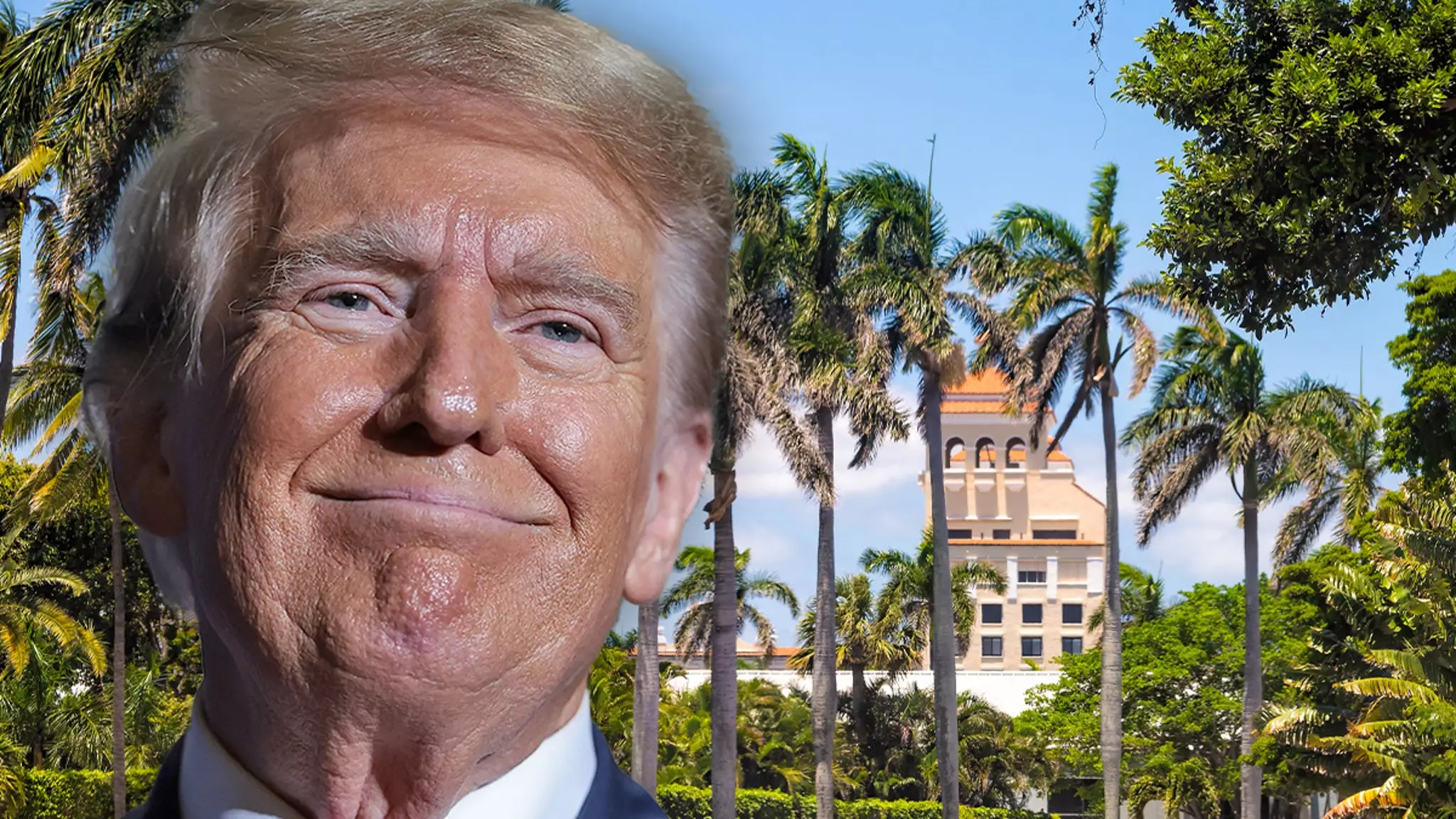The real estate landscape around Donald Trump’s properties is undergoing a significant transformation as he prepares for a renewed term in the White House. This change is characterized not only by a heightened sense of exclusivity but also by serious challenges posed by increased security concerns. Residents and prospective buyers in the vicinity of Trump’s various estates are feeling the ripple effects of his return to power.
Although one might assume that bolstered security measures would lead to a decline in housing prices near Trump’s properties, the outlook is quite the opposite. According to Senada Adzem, a seasoned real estate agent familiar with the nuances of the Palm Beach market, there is little expectation for dramatic fluctuations in property values following Trump’s inauguration. Buyers appear undeterred by the impending security adjustments at Mar-a-Lago, viewing the inconvenience of added security as a mere obstacle in exchange for the cachet that comes with living near a prominent political figure.
Adzem’s commentary sheds light on an interesting sociopsychological dynamic: while prospective residents acknowledge that living near Mar-a-Lago will come with “pain in the ass” complications, the allure of being part of Trump’s inner circle outweighs these inconveniences. The desire for proximity to power appears to be a prevailing sentiment among homebuyers, signifying a preference for prestige over practicality.
As preparations intensify for Trump’s next term, security measures around his properties are becoming more defined. A secret service official has indicated that while an extensive security strategy is in development, preliminary outlines include an increased presence of both Secret Service agents and local law enforcement, along with street closures surrounding Mar-a-Lago. This level of security, in part mandated by Trump’s role as President, is expected to transform the atmosphere in Palm Beach dramatically.
In New York City, the anticipation around Trump Tower mirrors this sentiment. Real estate agents report an uptick in inquiries about apartments in the iconic tower, suggesting a resurgence of interest from buyers who relish the idea of being associated with Trump. Noteworthy is that previously, during tumultuous times for Trump, when speculation about legal issues clouded the air, there had been concerns about property values in the tower declining. However, with his electoral success, confidence has evidently rebounded, indicating that buyers are once again drawn to the prestige that accompanies living in such proximity.
What drives individuals to seek homes near high-profile figures such as Trump? The answer lies in the complex interplay between social status and psychological comfort. For many, residing close to someone of Trump’s prominence is regarded not just as a lifestyle choice, but as a symbol of status. This conception reinforces the idea that individuals are willing to endure inconveniences—such as intrusive security measures and potential disruptions to their routine—simply for the privilege of living in a prestigious neighborhood that offers social currency.
This perspective reveals a broader commentary on the significance of location in real estate; it is not merely about bricks and mortar, but rather the status and connections one can cultivate by residing in a coveted area. Buyers are actively trading their comfort and ease for a chance to elevate their social standing, a trend that is inevitably tied to the current political climate.
In summation, the real estate market near Trump’s properties is poised for continued interest despite—or perhaps because of—the challenges introduced by enhanced security measures. As both existing homeowners and prospective buyers navigate the new landscape, they seem more inclined to weigh the perceived benefits of living in proximity to a powerful figure over the inconveniences presented by increased security. This epoch in real estate signifies the lengths to which individuals will go to associate themselves with political influence, highlighting both the value and the challenges found in such arrangements. For better or for worse, buyers are prepared to pay the “price” of proximity—security hurdles be damned.

